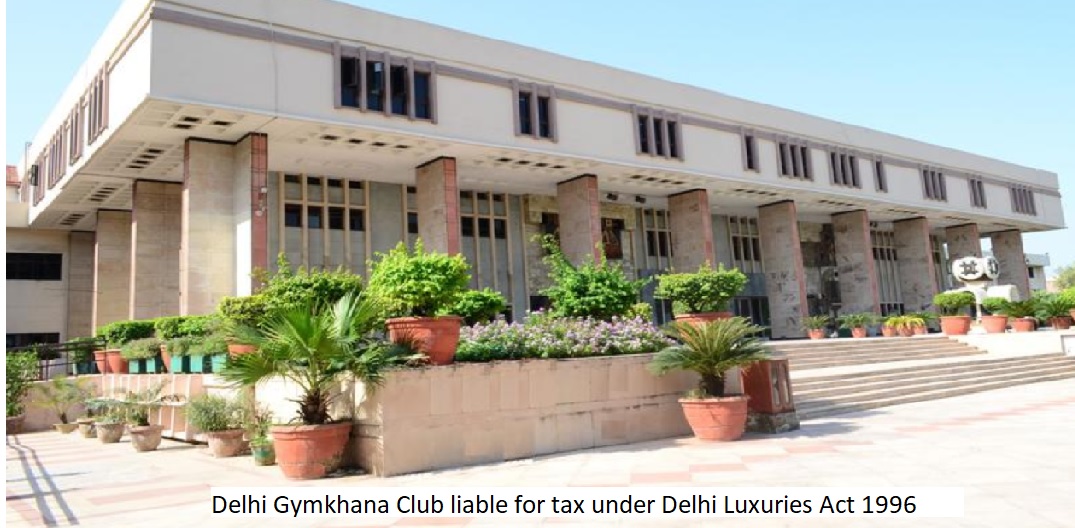


The Delhi High Court recently rendered a significant judgment, asserting that the Delhi Gymkhana Club falls within the ambit of taxation as per the provisions outlined in the Delhi Tax on Luxuries Act of 1996. This legal determination emerged from a bench comprising Justice Yashwant Varma and Justice Ravinder Dudeja.
The crux of the court's observation revolves around the interpretation of the Delhi Tax on Luxuries Act, 1996, particularly during the relevant assessment period. The court emphasized that, as per the legislative framework during this timeframe, the scope of the Act extended to cover the provision of residential accommodation within a club setting.
The Delhi Gymkhana Club, an eminent institution in the capital city, found itself subject to the implications of the Luxuries Act. The court's ruling sheds light on the intricacies of taxation, especially concerning establishments that offer not only recreational amenities but also residential facilities to their members.
The legal proceedings underscored the nuanced interpretation of tax laws, as the court dissected the language and intent behind the Delhi Tax on Luxuries Act, 1996. The judges scrutinized the specific provisions of the Act that pertained to the period under consideration. In doing so, they established that the legislative framework included within its purview the taxation of residential accommodation provided by clubs, thereby bringing the Delhi Gymkhana Club within its tax ambit.
This judicial pronouncement assumes significance not only for the parties directly involved but also for the broader legal landscape, setting a precedent for similar cases that may arise in the future. The ruling essentially delineates the contours within which luxury and recreational clubs could be subject to taxation, shedding light on the evolving nature of tax laws in response to societal changes and commercial practices.
It is imperative to acknowledge the diligence exercised by the court in examining the nuances of the Act and its applicability to the specific circumstances of the Delhi Gymkhana Club. Legal experts and tax professionals are likely to scrutinize this judgment closely, as it may have ramifications for other clubs or establishments offering comparable amenities.
Furthermore, the judgment prompts a reflection on the broader implications of taxation on luxury services and amenities. The court's interpretation of the Luxuries Act underscores the evolving nature of taxation laws to keep pace with societal and economic changes. As clubs and similar institutions increasingly diversify their offerings to include residential facilities, the tax framework must adapt to ensure a fair and comprehensive assessment of their activities.
In conclusion, the Delhi High Court's ruling on the taxability of the Delhi Gymkhana Club under the Delhi Tax on Luxuries Act, 1996, marks a noteworthy development in the intersection of legal interpretation and taxation. The judgment not only resolves the specific case at hand but also contributes to the evolving jurisprudence surrounding the taxation of luxury amenities provided by exclusive clubs and institutions.
TAGS: Delhi High Court Delhi Tax on Luxuries Act 1996 Gymkhana Club Taxation Residential accommodation Justice Yashwant Varma Justice Ravinder Dudeja